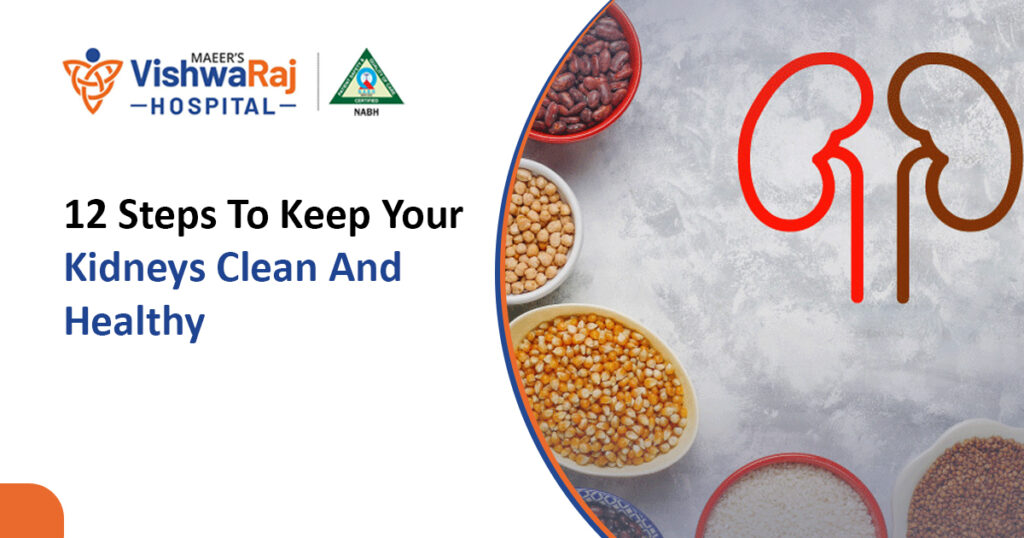Kidneys are vital organs responsible for filtering waste and excess fluids from your blood, regulating blood pressure, and producing hormones that are essential for bodily functions. Keeping your kidneys clean and healthy is crucial for overall well-being. In this blog post, we’ll explore 12 simple steps you can take to maintain optimal kidney health.
Table of contents
Stay Hydrated:
One of the most important steps to keep your kidneys healthy is to stay hydrated. Drinking an adequate amount of water helps your kidneys flush out toxins and waste products from your body. Aim to drink at least 8 glasses of water per day, or more if you are physically active or live in a hot climate.
Eat a Balanced Diet:
A balanced diet plays a key role in kidney health. Include plenty of fruits, vegetables, whole grains, and lean proteins in your diet. Limit your intake of processed foods, sodium, and sugary drinks, as they can put extra strain on your kidneys.
Monitor Your Blood Pressure:
Monitor Your Blood Pressure: High blood pressure can damage your kidneys over time. Keep your blood pressure in check by monitoring it regularly and taking steps to lower it if it’s too high. This may include adopting a healthy diet, exercising regularly, and taking prescribed medications as directed by your healthcare provider.
Maintain a Healthy Weight:
Being overweight or obese can increase your risk of kidney disease. Maintain a healthy weight by eating a balanced diet and exercising regularly. Aim for at least 30 minutes of moderate-intensity exercise most days of the week.
Limit Alcohol Intake:
Excessive alcohol consumption can harm your kidneys and lead to kidney disease. Limit your alcohol intake to moderate levels, which is defined as up to one drink per day for women and up to two drinks per day for men.
Quit Smoking:
Smoking can damage your blood vessels and decrease blood flow to the kidneys, increasing the risk of kidney disease. If you smoke, quitting is one of the best things you can do for your kidney health.
Manage Diabetes:
Diabetes is a leading cause of kidney disease. If you have diabetes, it’s important to manage your blood sugar levels through diet, exercise, and medication as prescribed by your healthcare provider.
Avoid Overuse of Painkillers:
Overuse of over-the-counter painkillers such as ibuprofen and aspirin can damage your kidneys. Use these medications sparingly and always follow the recommended dosage guidelines.
Get Regular Exercise:
Regular exercise not only helps maintain a healthy weight and blood pressure but also improves kidney function. Aim for a combination of cardiovascular exercise, strength training, and flexibility exercises for overall health.
Get Enough Sleep:
Getting enough sleep is important for kidney health. Aim for 7-8 hours of quality sleep per night to allow your body to repair and rejuvenate.
Practice Stress Management:
Chronic stress can take a toll on your kidneys and overall health. Practice stress-reduction techniques such as meditation, deep breathing, yoga, or spending time in nature to keep stress levels in check.
Get Regular Check-ups:
Regular check-ups with your healthcare provider are essential for monitoring your kidney health. Be sure to discuss any concerns you have about your kidney function and follow your provider’s recommendations for screenings and tests
Conclusion: By following these 12 steps, you can help keep your kidneys clean and healthy for years to come. Remember that small changes in your lifestyle can have a big impact on your overall health, so prioritize your kidney health starting today!



